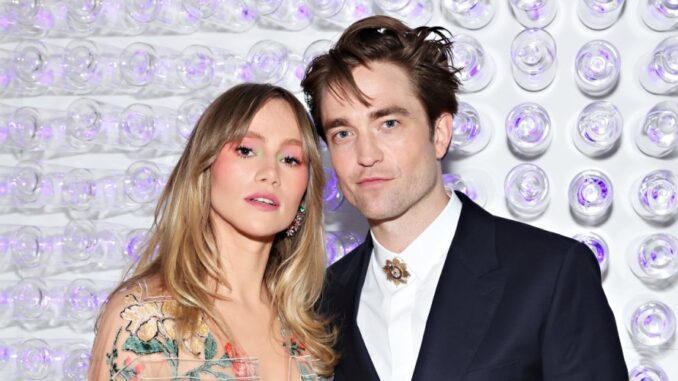
The Gleeful Grin of Redemption: Robert Pattinson and the Twilight Legacy
Robert Pattinson, the name once synonymous with brooding vampires and teenage angst, now conjures images of enigmatic Batman and daring art-house experiments. His career, a phoenix rising from the ashes of sparkly skin and restrictive fan fervor, has been nothing short of remarkable. And as he confidently strides through critically acclaimed roles, a subtle, almost mischievous grin plays on his lips, a silent acknowledgment of those who still cling to the outdated notion of Twilight as a career-killing albatross. It’s a grin not of malice, but of triumphant vindication, a testament to the actor who dared to shed his fangs and forge his own path.
The hatred directed at the Twilight series, especially in its heyday, was often visceral and disproportionate. Critics ridiculed its melodramatic plot, its questionable messages, and its fervent fanbase. Pattinson, as the face of this cultural phenomenon, often bore the brunt of the criticism. He was seen as a reluctant participant, trapped in a role that stifled his artistic potential. Rumors circulated of his frustration, his sarcastic comments on set becoming legend. This narrative painted him as a prisoner of his own success, a victim of the very role that made him a household name.
But Pattinson, far from being a victim, cleverly leveraged the platform Twilight provided. He recognized the inherent absurdity of the situation and used it to his advantage. While the world obsessed over Edward Cullen, Pattinson secretly began plotting his escape, choosing roles that were deliberately subversive and challenging. He wasn’t trying to erase Twilight from his resume; he was using it as a launchpad for a more authentic and fulfilling career.
This is where the imagined laughter comes into play. When Pattinson sees those still fixated on Twilight as the definitive marker of his acting abilities, a quiet amusement undoubtedly flickers within him. He knows the film's legacy is complex, deeply entrenched in the cultural landscape, and ripe for both criticism and nostalgia. He understands the fervor it inspired, the connection it forged with millions of young people. He probably even appreciates the paycheck that allowed him to pursue his passion projects.
The laughter isn't a dismissal of the fans, however, but rather a gentle chide to those who underestimated him. He has actively sought out roles that defy expectations. From the grimy realism of "Good Time" to the surreal nightmare of "The Lighthouse," he consistently pushes boundaries, showcasing a range and depth previously unseen by those who only knew him as the sparkly vampire. He has proven his critics wrong, demonstrating a commitment to craft that transcends the shallow confines of teen idol status.
His casting as Batman was perhaps the ultimate act of defiance. It was a declaration that he was more than just a romantic lead; he was a capable and dedicated actor ready to tackle one of the most iconic roles in cinematic history. And he delivered, offering a nuanced and brooding portrayal that resonated with audiences and critics alike.
The journey from Edward Cullen to Batman is a testament to Robert Pattinson's resilience, his ambition, and his unwavering commitment to his craft. The laughter, real or imagined, is the sound of vindication, a celebration of artistic freedom, and a gentle reminder to those who judged him too harshly: he's more than just a sparkly vampire. He's an actor, a craftsman, and an artist who has not only escaped the Twilight legacy but has also embraced it as a stepping stone to something far greater. The grin, therefore, is not one of scorn, but of profound and well-deserved satisfaction.
